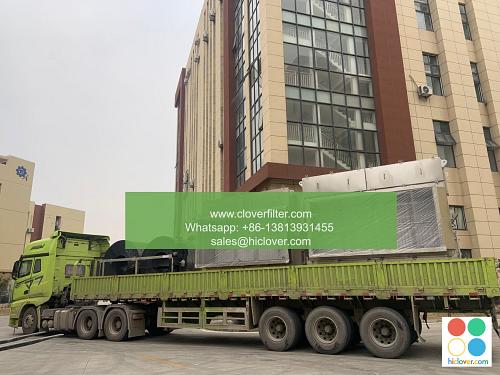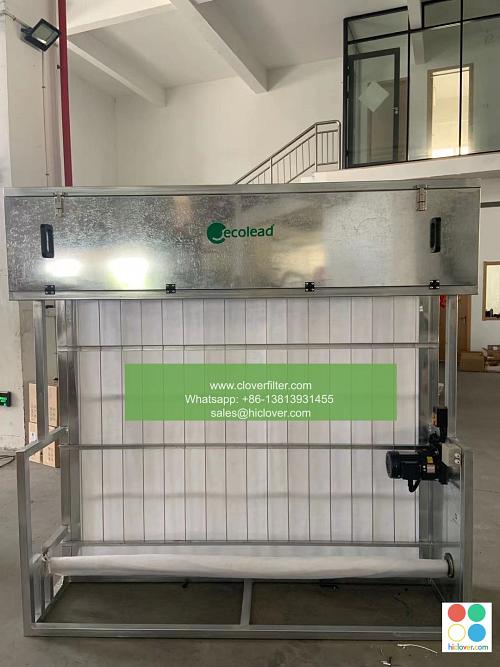Maximizing Efficiency: Automatic Roll Air Filters in British Columbia Cleanroom Facilities

British Columbia is known for its thriving industries, including technology, pharmaceuticals, and food processing, which often require cleanroom facilities to maintain high standards of quality and purity. Cleanrooms are controlled environments that minimize airborne particles, allowing for the production of sensitive equipment, medical devices, and other precision products. One crucial aspect of maintaining a cleanroom’s integrity is the air filtration system, and automatic roll air filters have become an essential component in maximizing efficiency. In this article, we will explore the benefits and applications of automatic roll air filters in British Columbia’s cleanroom facilities.
A cleanroom’s air filtration system is designed to remove airborne particles, such as dust, pollen, and other contaminants, to prevent damage to sensitive equipment and products. Traditional air filtration systems often rely on manual replacement of filters, which can be time-consuming and may compromise the cleanroom’s integrity. Automatic roll air filters, on the other hand, offer a more efficient and reliable solution. These filters are designed to automatically roll out a new filter media as the old one becomes saturated, ensuring a consistent and high level of air quality.
The benefits of automatic roll air filters in cleanroom facilities are numerous. Firstly, they minimize downtime, as the automatic roll-out feature eliminates the need for manual replacement, reducing the risk of contamination and maintaining production schedules. Secondly, they optimize filter performance, as the continuous roll-out of new filter media ensures that the air quality remains consistent, even during periods of high airborne particle concentrations. Thirdly, they reduce labor costs, as the automated system minimizes the need for manual maintenance, allowing staff to focus on other critical tasks.
In British Columbia, several industries can benefit from the implementation of automatic roll air filters in their cleanroom facilities. For instance, the technology sector, which includes companies involved in the production of semiconductors, electronics, and medical devices, requires ultra-clean environments to prevent damage to sensitive components. The pharmaceutical industry, which is also prevalent in British Columbia, requires high-purity air to prevent contamination of medicines and other products. Food processing facilities, which are common in the province, can also benefit from automatic roll air filters to maintain high standards of hygiene and prevent spoilage.
When selecting an automatic roll air filter for a cleanroom facility in British Columbia, it is essential to consider several factors. Firstly, the filter’s efficiency and effectiveness in removing airborne particles, particularly those that are relevant to the specific industry or application, should be evaluated. Secondly, the filter’s compatibility with the existing air handling system and cleanroom infrastructure should be assessed. Thirdly, the filter’s maintenance requirements, including the frequency of replacement and disposal of used filter media, should be considered.
In addition to the technical considerations, it is also crucial to evaluate the cost-benefit analysis of implementing an automatic roll air filter in a cleanroom facility. While the initial investment may be higher than traditional air filtration systems, the long-term benefits, including reduced labor costs, minimized downtime, and optimized filter performance, can lead to significant cost savings and improved productivity.
In conclusion, automatic roll air filters are an essential component in maximizing efficiency in British Columbia’s cleanroom facilities. Their benefits, including minimized downtime, optimized filter performance, and reduced labor costs, make them an attractive solution for various industries, including technology, pharmaceuticals, and food processing. By considering the technical and economic factors, cleanroom facilities in British Columbia can implement automatic roll air filters to improve their air quality, reduce costs, and maintain high standards of quality and purity.
Frequently Asked Questions (FAQs):
Q: What is the typical lifespan of an automatic roll air filter?
A: The lifespan of an automatic roll air filter depends on various factors, including the filter’s efficiency, airflow rates, and particle concentrations. Typically, an automatic roll air filter can last for several months to a few years, depending on the specific application and usage.
Q: Can automatic roll air filters be customized to meet specific industry requirements?
A: Yes, automatic roll air filters can be customized to meet specific industry requirements, including filter efficiency, airflow rates, and compatibility with existing air handling systems.
Q: How do automatic roll air filters compare to traditional air filtration systems in terms of cost?
A: While the initial investment in an automatic roll air filter may be higher than traditional air filtration systems, the long-term benefits, including reduced labor costs and minimized downtime, can lead to significant cost savings and improved productivity.
Q: Can automatic roll air filters be used in conjunction with other air filtration systems?
A: Yes, automatic roll air filters can be used in conjunction with other air filtration systems, including HEPA filters and activated carbon filters, to provide a comprehensive air purification solution.


